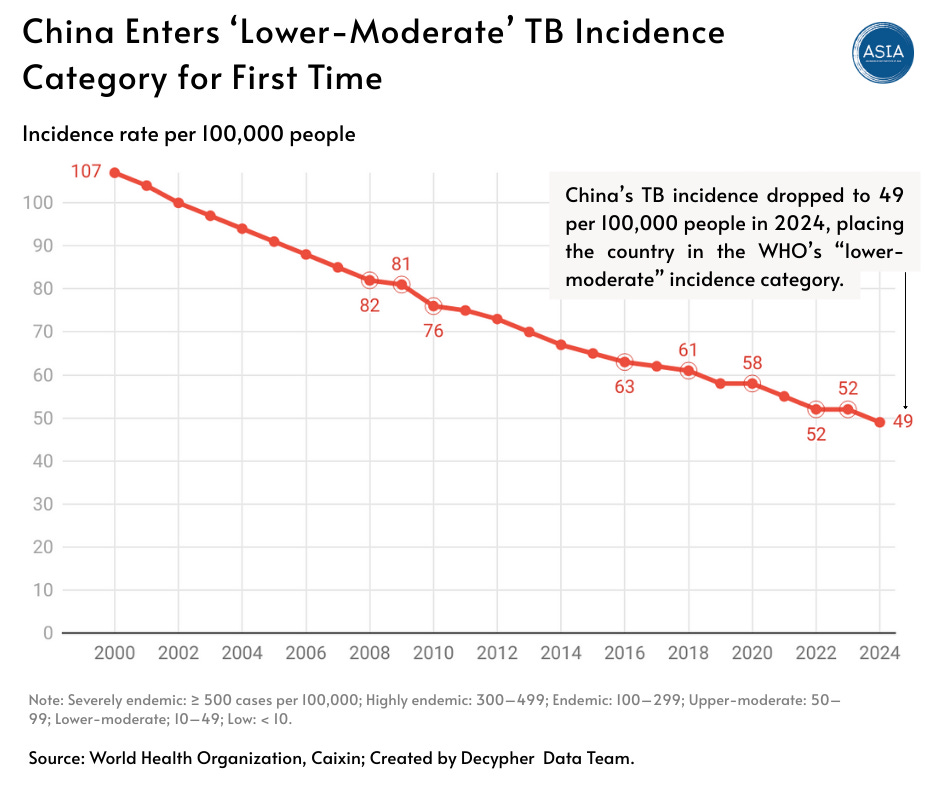China and the World: Beijing’s State Loan Purchases, Japan Tourism Losses, Hasina Sentenced in Bangladesh
This week we track key shifts in China’s domestic and foreign policy landscape as well as major global developments.
China Quote 🗩
“I think there’s a feeling in Tokyo that the Chinese economy is in deep, deep, deep trouble. And their negotiation position vis-à-vis the United States is getting weaker and that there was some space to have a stronger position.”
– Professor Stephen Nagy, International Christian University, Tokyo
The New Emerging Centre in AI Research: Tsinghua University
Tsinghua University has reached a phase where its impact stretches far beyond its reputation as China’s top engineering school. A growing belief that the country is poised to play a central role in the next chapter of artificial intelligence is visible across the campus. The university’s incubation ecosystem turns student ideas into companies at remarkable speed, while its laboratories work on model design, reasoning architectures, and high-end computation.
Part of this momentum comes from a wider national push for technological self-reliance. China now accounts for about 60 percent of all AI patents worldwide, a sign of how deeply the state has prioritised the field through funding, subsidies, and political backing. In this setting, research rarely stays within academic journals. It often evolves into start-ups, patents, or partnerships with industry, reinforcing a culture where innovation is expected rather than exceptional. Tsinghua sits at the centre of this surge. Between 2005 and 2024, it filed 4,986 AI-related patents, a volume that surpasses the output of several leading American universities combined.
Another factor shaping its rise is the return of scholars who built their careers overseas. Their decision to establish new departments and research groups at Tsinghua is shifting a small but meaningful part of global intellectual gravity back to Beijing. The presence of this returning expertise, combined with a large domestic talent pool, has created an environment with both scale and ambition. Interdisciplinary work has become a hallmark of the institution, bringing together neurology, engineering, statistics, and computer science. This mix has encouraged unconventional approaches, including models influenced by patterns of human reasoning.
The broader rivalry between China and the United States still shows contrasting strengths. American universities remain ahead in the influence of certain high-impact patents and in the performance of several frontier models. Yet China is rapidly expanding its share of the world’s elite AI researchers, and its institutions are running larger experiments across a wider range of fields. Within this landscape, Tsinghua stands out for its growing confidence in shaping the direction of the discipline.
All of this suggests that the next wave of breakthrough ideas may emerge from places once seen as followers rather than frontrunners. Tsinghua is no longer simply tracking global trends. It is beginning to set some of them, driven by the belief that decisive advances in artificial intelligence may well come from its own laboratories and lecture halls.
Economic Activity🏦
Data reveal Beijing used state loans to buy sensitive assets in wealthy countries
BBC reports new AidData findings showing that Chinese state banks have channelled more than US$2 trillion into overseas investments since 2000, with hundreds of billions directed at advanced economies to acquire strategically important firms. One high-profile case was the 2015 purchase of Wright USA, an insurer covering CIA and FBI personnel, financed by a US$1.2 billion state-backed loan routed through the Cayman Islands. The deal, later unwound after a US national security review, formed part of a broader pattern of Beijing-backed acquisitions in sectors such as semiconductors, robotics and biotech.
China reclaims top spot as Germany’s leading trade partner
DW reports that China has overtaken the United States as Germany’s highest-volume trade partner for the first three quarters of 2025, with bilateral trade reaching €185.9 billion. Imports from China rose sharply while German exports to both China and the United States fell, particularly in the automotive sector amid tariff disputes. The United States remains Germany’s most valuable export market, but China’s stronger import growth pushed it back into the top position.
Japan tourism hit by up to US$1.2 billion in China-related cancellations
Straits Times reports that about 30 per cent of the 1.44 million planned trips from China to Japan through December have been cancelled after Beijing advised citizens to avoid travel, creating a projected loss of US$500 million to US$1.2 billion. Analysts note sharp declines in near-term departures, rerouting of travellers to Singapore and South Korea, and suspended group tours by major Chinese agencies. With Chinese visitors making up a quarter of annual arrivals, prolonged tensions could push cumulative losses to US$9 billion in 2026.
China effectively suspends imports of Japanese marine products
NHK reports that China has taken steps that effectively halt imports of Japanese marine products by stopping acceptance of certificates required to verify radiation safety. Beijing says it needs to reassess monitoring of treated water released from the Fukushima Daiichi plant, though Japanese officials believe the move may also relate to comments by Prime Minister Takaichi Sanae on a possible Taiwan emergency.
China’s long era of excess savings is ending
Financial Times argues that China’s multi-decade savings surplus is reversing as its working-age population shrinks and policymakers pivot towards boosting household consumption. Savings have already fallen from 50 per cent of GDP in 2010 to 43 per cent, with UN projections showing a further steep decline in the labour force. Beijing’s new five-year plan prioritises consumption through expanded benefits, higher minimum wages and pension increases, alongside longer-term reforms to hukou, income and welfare systems.
China’s shrinking savings surplus set to push global rates higher
FT reports that China’s long-running savings glut is beginning to unwind as demographics worsen, government transfers rise and policymakers shift toward boosting household consumption. The working-age population continues to contract and Beijing is expanding benefits, raising wages and preparing deeper reforms under the next Five-Year Plan to lift domestic demand. Lower national savings would reduce China’s net exports and cut its reinvestment in foreign securities, a shift that analysts say could add structural upward pressure on long-term bond yields in developed economies.
US tech giants back tighter curbs on Nvidia’s China chip exports
Yahoo Finance reports that Amazon and Microsoft have broken with Nvidia by supporting the proposed Gain AI Act, a congressional plan to further restrict advanced AI chip exports to China and other embargoed states. Both firms, whose cloud platforms rely heavily on Nvidia hardware, argue tighter controls are necessary, while Nvidia warns the policy is self-defeating and rooted in “science fiction.” Meta, Google and President Trump have not taken clear positions, though Trump recently suggested Nvidia’s Blackwell chips should not be shared abroad.
Top US Democrat seeks probe into Chinese firms tied to Nexperia supply chain
SCMP reports that US lawmaker Raja Krishnamoorthi has urged the Commerce Department to investigate four Chinese semiconductor companies that could supply wafers to the Chinese-owned Dutch chipmaker Nexperia, warning of potential safety and reliability risks for vehicles. The request follows Dutch moves to seize control of Nexperia amid concerns over asset transfers to China, Beijing’s subsequent export block on chips from its China operations and a major supply-chain disruption for global carmakers.
EU poised to take tough action against Huawei
Le Monde reports that the European Commission is preparing a proposal to bar Huawei from Europe’s mobile networks, arguing the company has become too entrenched in critical infrastructure across the bloc. The move would threaten Huawei’s €300 million Brumath factory project in France, which the firm is already reconsidering, and would align Europe more closely with earlier United States restrictions citing security concerns.
Evergrande’s Canadian hotel put up for sale after debt default

Business Times reports that China Evergrande’s Fairmont Le Chateau Montebello in Quebec has been placed in receivership after the developer failed to meet debt obligations, with court-appointed receiver PwC preparing to sell the property. The insolvent subsidiary behind the 95-year-old resort owes C$58 million to creditors, and the hotel will remain open during the sale process. Evergrande, which defaulted in 2021 in the sector’s largest collapse, purchased the asset in 2014 and now faces further liquidation proceedings as its broader crisis continues.
Inside China🐉
China prepares public for intensified pressure campaign on Taiwan
WSJ reports that Beijing is laying the groundwork for a new phase of coercive pressure on Taiwan, using a strategy described as “the pen and the gun.” State television is preparing the domestic audience for tougher measures, while officials sharpen rhetoric toward countries supporting Taipei. President Xi Jinping has made unification central to his national agenda, and the emerging campaign blends propaganda with the threat of force as Beijing signals a more assertive approach.
Chinese state media urges deeper research into Ryukyu history amid Japan row
SCMP reports that China’s state-run Global Times has called for expanded research into the Ryukyu Islands as tensions with Japan rise following Prime Minister Sanae Takaichi’s comments on a potential Taiwan conflict. The editorial argues that Ryukyu history carries strategic relevance, touching on issues such as US military bases in Okinawa and broader regional security.
Top biologist explains move from Germany to China
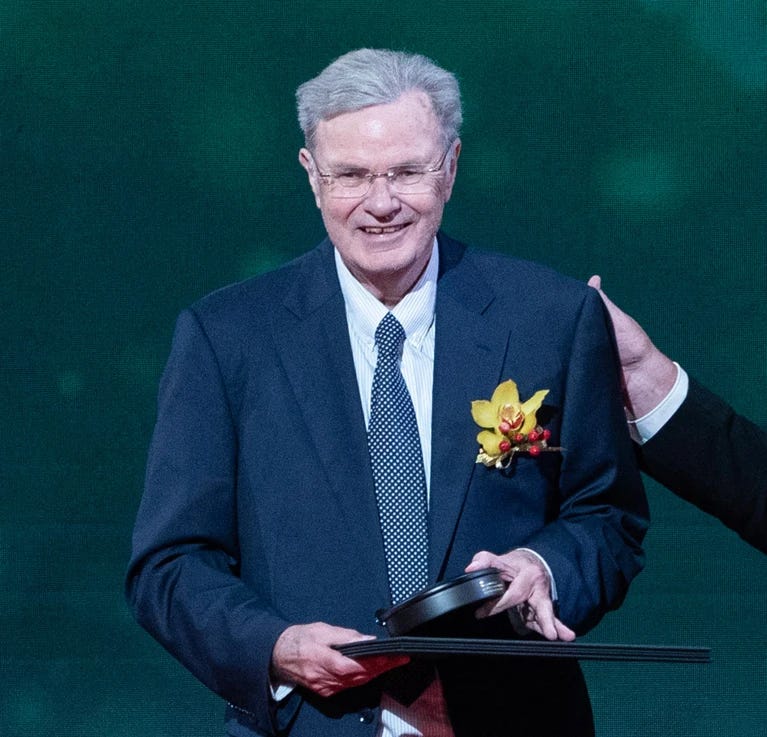
Nature reports that Shaw Prize winner Wolfgang Baumeister, a pioneer of cryogenic electron tomography, has shifted his research base from Germany to ShanghaiTech University, where flexible arrangements allow him to continue working beyond Germany’s mandatory retirement age. Baumeister says China offers rapid support for big-ticket scientific equipment, though more routine decisions can be slowed by administrative committees. He highlights strong institutional backing, significant investment in high-end instrumentation and growing enthusiasm for science as key reasons behind China’s rising pull for international researchers.
International Relations🌏
UK PM preparing for China visit despite tensions over espionage allegations
Sky News reports that Sir Keir Starmer is expected to visit China at the end of January, according to multiple sources cited by political editor Beth Rigby. The trip would come amid a fraught political climate after recent claims of Chinese espionage in parliament and warnings from MI5 about recruitment attempts by China-linked agents. Ministers argue that engagement remains necessary for economic ties and cooperation on issues like climate, though senior figures acknowledge ongoing security risks. If confirmed, it would be the first China trip by a UK prime minister since 2018.
Chinese investment in UK gave access to sensitive technology, data show
BBC reports that China has financed about £45 billion of investments in the UK this century, with several deals granting access to advanced technologies with potential military uses. AidData’s new dataset highlights how purchases aligned with Beijing’s Made in China 2025 strategy, including the 2017 takeover of chip designer Imagination Technologies by a fund backed by China Reform, an entity tied to the State Council. Former CEO Ron Black says he was asked to transfer UK semiconductor expertise to China and later pushed out after resisting. The investigation finds that weak screening before 2022 allowed Chinese state-linked investors to acquire assets in robotics, semiconductors and aerospace, prompting criticism from former intelligence officials that the UK was too permissive and only recently began tightening controls.
China says it has solved Japanese spy cases as tensions escalate
SCMP reports that China’s Ministry of State Security claims to have uncovered multiple espionage operations by Japanese intelligence agencies and has pledged a tougher counter-intelligence campaign. The announcement comes amid a sharp diplomatic clash over Prime Minister Sanae Takaichi’s remarks that Japan could deploy its forces in a Taiwan conflict, which Beijing denounced as a military threat.
China used India–Pakistan clash to test weapons, US report says
The Independent reports that a US congressional panel has concluded China exploited the India–Pakistan conflict in May to trial several advanced weapons supplied to Islamabad, including HQ-9 and PL-15 missiles and J-10C fighter jets. The four-day exchange of strikes and air combat saw Pakistan claim it downed multiple Indian aircraft, which Beijing used to promote its defence technology and undermine rival systems such as the French-made Rafale. The report says China also ran a disinformation campaign to bolster its claims and used the episode to advance regional arms sales amid continuing India–China border tensions.
China’s foreign minister begins Central Asia tour in Kyrgyzstan
Anadolu Agency reports that Chinese Foreign Minister Wang Yi has begun an official trip to Central Asia with his first stop in Kyrgyzstan, where he will meet senior leaders and attend the inaugural Strategic Dialogue session. Both sides are expected to sign new cooperation documents aimed at deepening bilateral ties. Wang will continue to Uzbekistan and Tajikistan for further strategic discussions with his regional counterparts.
China criticises US ambassador in Greece over comments on Piraeus port
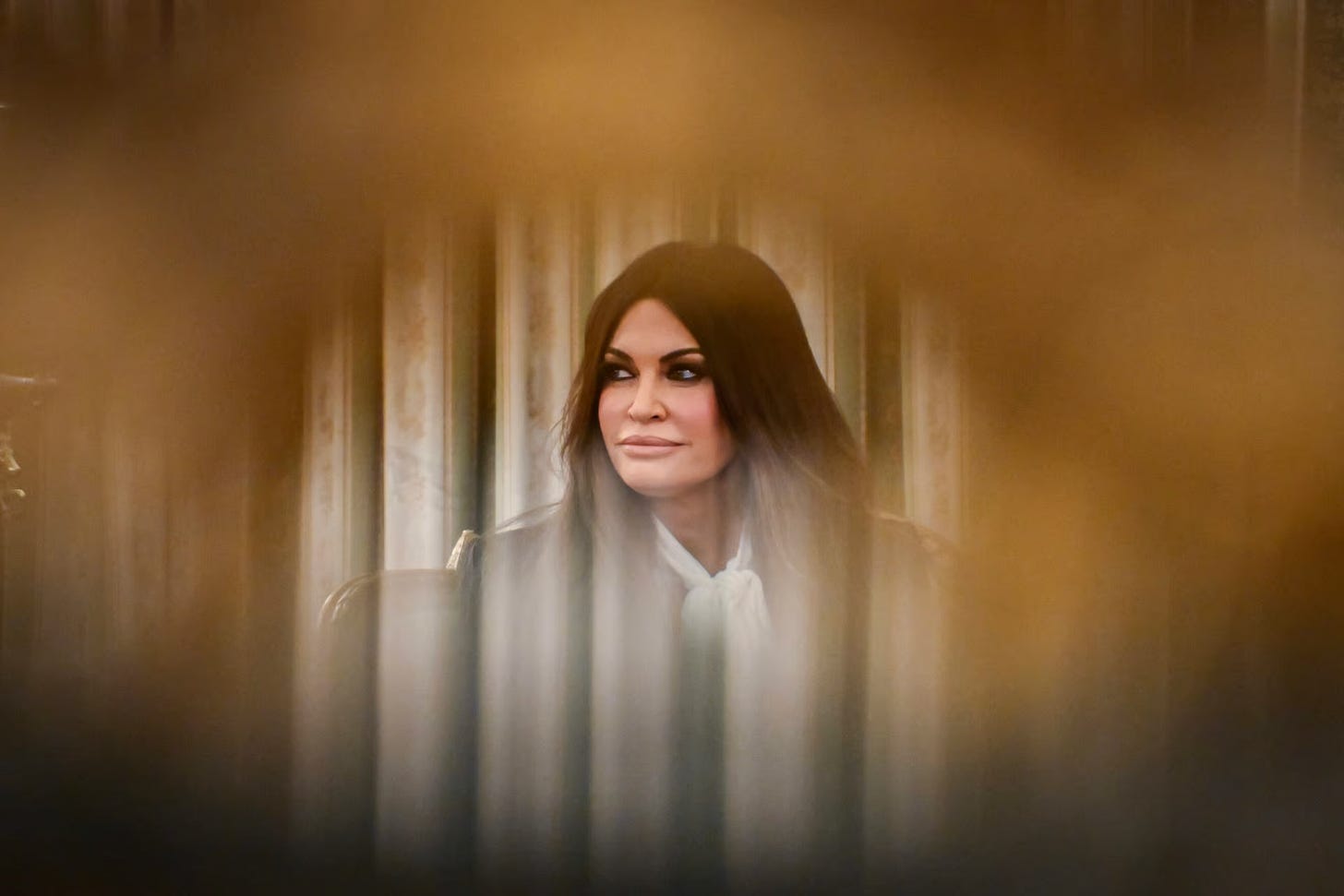
Politico reports that the Chinese embassy in Athens has condemned US Ambassador Kimberly Guilfoyle after she called China’s control of the Port of Piraeus “unfortunate” and suggested it could be offset or reversed. Beijing labelled her remarks a malicious slander on Sino-Greek relations and an intrusion into Greece’s internal affairs. Guilfoyle has pushed for greater US-backed infrastructure investment, including plans for a new port in Elefsina, while Greece says it will honour existing agreements with China, whose state shipping firm Cosco holds the majority stake in Piraeus.
US charges four men over scheme to ship advanced Nvidia AI chips to China
CBS News reports that two Chinese nationals and two Americans have been arrested for allegedly exporting controlled Nvidia A100 GPUs to China via Malaysia and Thailand. The Justice Department says the group falsified documents, created fake contracts and knowingly avoided export licences, receiving nearly US$4 million from China to finance the operation. About 400 chips were shipped between October 2024 and January 2025 before authorities blocked two further consignments. The charges, which carry potential 20-year sentences, come as Washington tightens controls amid China’s push to lead global AI by 2030.
Norway tests Chinese-made bus for hacking risks in underground trial
Wall Street Journal reports that Oslo’s transport authority drove a Yutong electric bus into a sealed mountain mine to assess potential cyber vulnerabilities amid rising concern over Chinese technology in European infrastructure. Cybersecurity experts concluded the vehicle could theoretically be remotely disabled through its battery management system, though only under certain conditions. The test reflects growing scrutiny across Europe as Chinese-made equipment becomes more common in public transport and power networks.
China warns it will not lead global climate action alone
The Guardian reports that senior climate adviser Wang Yi says China remains committed to a long-term clean energy transition but does not want to shoulder global climate leadership without the United States. He said Beijing aims to accelerate its shift to renewables, expand support for developing countries and back a successful Cop30 outcome, though industrial resistance and geopolitical tensions remain obstacles. The EU has urged China to cut emissions more aggressively, while Beijing argues that tariffs and trade barriers are slowing green technology deployment and disadvantaging developing nations.
EU defends carbon border levy as India and China push trade fight at COP30
Politico reports that the EU is under heavy pressure at COP30 as India, China, Saudi Arabia and several developing countries challenge its carbon border adjustment mechanism, arguing it is protectionist and raises the cost of climate cooperation. The levy, due to take effect on 1 January, imposes fees on imports such as steel and cement from countries without comparable carbon pricing. Brussels insists CBAM is a climate tool aimed at preventing carbon leakage, not a trade weapon, and rejects attempts to bring trade disputes into UN climate forums.
EU says it is becoming ‘collateral damage’ in US-China race for critical minerals
Financial Times reports that Brussels plans to set up a central body to co-ordinate procurement and stockpiling of critical minerals, after EU industry chief Stéphane Séjourné warned the bloc is losing out as the US snaps up supplies and China tightens export controls. China’s curbs on rare earths forced several European firms to halt production, exposing the bloc’s dependence on Beijing, which dominates global refining. Séjourné said the new “centre” would pool funding, organise joint purchases and accelerate supply deals with partners such as Brazil and South Africa.
Tech in China🖥️
Tsinghua University leads global race in AI patents

Bloomberg reports that Tsinghua University has surged ahead of leading United States institutions in the volume of artificial intelligence and machine learning patents, accumulating nearly five thousand between 2005 and 2024. China now accounts for more than half of all active patent families in these fields, reflecting the state-backed drive to dominate critical technologies. Tsinghua’s campus has become a hub for AI research, startups and chip development, while its graduates and faculty take key roles across China’s tech sector.
Global Risk🗺️
Bangladesh sentences ex-PM Hasina to death over 2024 protest crackdown
BBC reports that Bangladesh’s former prime minister Sheikh Hasina has been sentenced to death in absentia after a special tribunal found her guilty of crimes against humanity linked to last year’s student-led protests, which the UN estimates left up to 1,400 people dead. Hasina, now in exile in India, condemned the verdict as politically motivated. The ruling increases pressure on Delhi to consider an extradition request, though India is unlikely to comply. Security has tightened across Bangladesh as fresh protests emerge and the interim government warns it will suppress any unrest.
India set to halt Russian oil purchases as new U.S. sanctions take effect
New York Times reports that Indian refiners are rushing to take final deliveries of Russian crude before U.S. sanctions targeting companies dealing with Rosneft and Lukoil begin on Friday. The restrictions are expected to end India’s three-year run of buying discounted Russian oil, which at its peak supplied about 40 percent of India’s crude. The Trump administration had already imposed punitive tariffs on Indian goods this summer over the issue, but New Delhi kept buying. With penalties now aimed at firms and their financial partners, most major Indian refiners are preparing to comply, though smaller players may seek covert purchases.
Zelensky agrees to negotiate on Trump’s Ukraine peace plan
Axios reports that President Volodymyr Zelensky has signalled he will engage with the Trump administration’s new peace plan, despite the proposal requiring sweeping concessions to Russia, including giving up territory Ukraine currently holds. Zelensky told US Army Secretary Dan Driscoll he is prepared for rapid negotiations and expects to speak directly with President Trump soon. The plan, drafted with input from Russian officials, has alarmed Kyiv and European capitals, particularly sections limiting Ukraine’s postwar military.
UK warns Russia after spy ship targets RAF pilots with lasers
Independent reports that defence secretary John Healey has issued a public warning to Moscow after the Russian vessel Yantar, operating north of Scotland, directed lasers at RAF surveillance pilots. Healey called the action “deeply dangerous” and said the ship poses a threat to undersea infrastructure, vowing the UK is “ready” if it moves south. The embassy in London dismissed the allegations as “Russophobic.” The incident comes alongside a parliamentary report warning Britain is unprepared for a major attack, citing cyber intrusions, airspace violations and rising global instability.
US adds 119,000 jobs in September but unemployment ticks up to 4.4 percent
CNN reports that the delayed September jobs data show a stronger-than-expected gain of 119,000 positions after an August decline, though revised figures reveal deeper weakness in earlier months. The unemployment rate rose to 4.4 percent, its highest since 2021, and wage growth slowed, leaving the Federal Reserve with a mixed picture ahead of its December meeting. Markets swung sharply as investors weighed the implications for interest rates and corporate earnings, highlighting persistent fears of slowing growth, sticky inflation and mounting layoffs across major firms.
Racist attacks on Indian Americans surge amid hard-right radicalisation
CNN reports a sharp rise in racist abuse targeting Indian Americans, fuelled by far-right online networks and hardening anti-immigrant rhetoric within parts of the MAGA movement. Senior officials celebrating Diwali faced waves of bigotry on X, while researchers tracked thousands of hostile posts portraying Indians as scammers and job thieves, particularly around the H-1B visa debate. Offline incidents are increasing, including public harassment, calls for mass deportation and white supremacist protests outside temples. Analysts say Indian Americans’ professional success and high visibility make them a target as nativist groups frame them as a cultural and economic threat.
Extreme rainfall poses rising mortality risks for Mumbai’s poorest, study finds
Nature highlights research showing that heavy rain, high tides and flooding sharply increase mortality in Mumbai, with the greatest impact on women, children and residents of informal settlements. The study links extreme rainfall to higher death rates and warns that climate change will amplify these risks as storms intensify and sea levels rise. Researchers argue that understanding how these hazards interact is essential for protecting vulnerable populations in one of India’s most densely populated coastal cities.
Nomura probes whether India bond desk inflated profits
Business Times reports that Nomura is investigating its India fixed-income unit over concerns that traders may have boosted reported profits by using theoretical valuations for Strips trades rather than prices reflecting actual market liquidity. The compliance review focuses on whether accounting practices overstated gains in a niche but fast-growing segment of India’s US$1.3 trillion sovereign debt market. Trading volumes in Strips have surged as insurers increase purchases, raising scrutiny of how illiquid positions are marked.
Trump–MBS meeting highlights Saudi prince’s global rehabilitation and US political turmoil
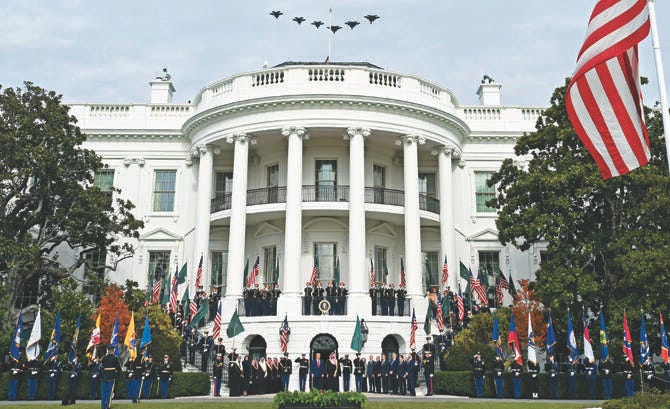
New York Times reports that Crown Prince Mohammed bin Salman used his Washington visit to present himself as a steadier statesman, in sharp contrast to President Trump’s combative performance during their Oval Office appearance. Once ostracised after the 2018 killing of Jamal Khashoggi, the prince has rebuilt influence through investment, diplomacy and a push to modernise Saudi Arabia’s economy. The meeting featured Trump dismissing questions about Khashoggi while MBS adopted a more restrained tone, emphasising long-term ties and pursuing deals including F-35 jets and Nvidia chips. The prince also urged US action on Sudan’s war.
Larry Summers quits OpenAI board and takes leave from Harvard amid Epstein email fallout
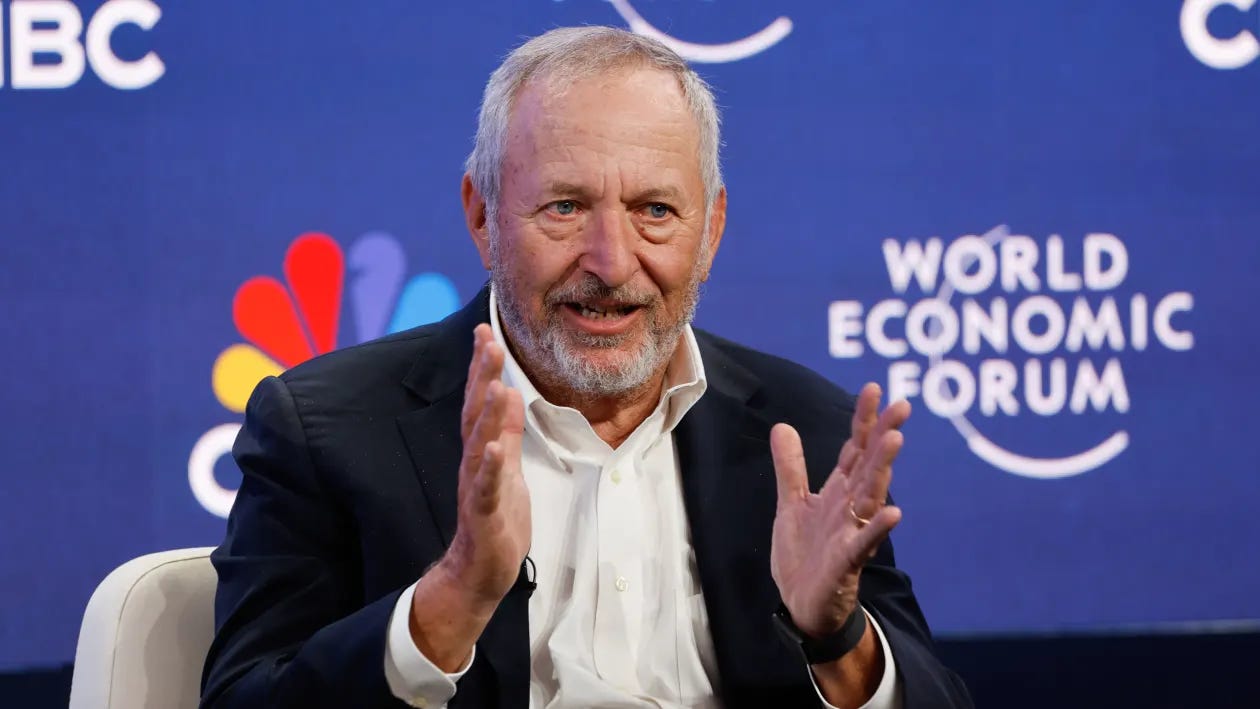
CNBC reports that Larry Summers has resigned from the OpenAI board and taken leave from Harvard after newly released emails revealed extensive contact with Jeffrey Epstein. Harvard has launched a formal review of Summers’ relationship with Epstein, prompting him to halt teaching and step back from directing the Kennedy School’s business and government centre. Summers, who called his correspondence with Epstein “misguided,” faces mounting political pressure as Congress moves to force public release of all federal Epstein files.
Iranian nuclear experts held covert meetings with Russian weapons institute, documents show
Financial Times reports that Iranian nuclear specialists linked to SPND, the defence research organisation long associated with Iran’s military nuclear work, conducted a second clandestine visit to a Russian weapons contractor in late 2024. The delegation, led by procurement broker Ali Kalvand of DamavandTec, included four researchers posing as company staff but affiliated with defence-linked Iranian universities. They met Laser Systems, a St Petersburg firm licensed to develop weaponry for Russia’s defence ministry.
CIA covertly tried to cripple Afghanistan’s opium industry for a decade
Anadolu Agency reports that the CIA ran a classified operation from 2004 to 2015 to weaken Afghanistan’s opium economy by airdropping genetically modified poppy seeds that produced plants with almost no heroin-yielding chemicals. The Washington Post investigation says British C-130s helped target fields in Helmand and Nangarhar, under a programme authorised by President George W. Bush and continued under Barack Obama.
Nearly half of English universities face deficits as international fee levy approaches
The PIE News reports that new modelling by England’s higher education regulator warns that 45 percent of universities could fall into deficit in 2025/26, driven by a forecast £437.8m drop in tuition fee income. The Office for Students also projects that 45 providers may have less than 30 days’ liquidity next year. The analysis does not include the forthcoming levy on international student fees, which the sector fears will worsen deficits. The OfS notes a modest rebound in overseas recruitment, with CAS issuances up 6.4 percent before the September intake, although visa numbers remain well below 2023 levels and Chinese postgraduate demand has dropped sharply.
Decypher Data Dive📊
China has entered the “lower-moderate” tuberculosis incidence category for the first time, according to the World Health Organization (WHO). New TB cases fell to 696,000 in 2024 — a 6.1% decrease reducing the incidence rate to 49 per 100,000 people.
— — —
Microessay By Shivani
Data By Bhupesh
Edited By Aurko
Produced by Decypher Team in New Delhi, India
— — —


